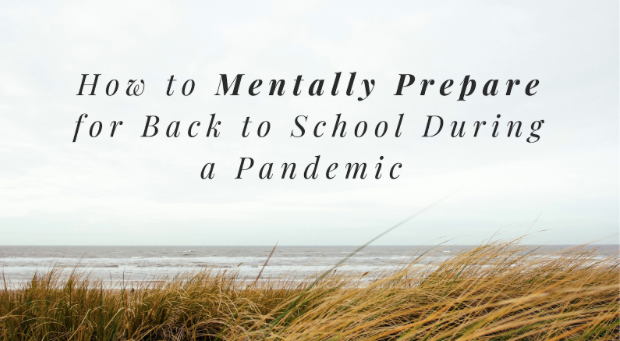Things looked different last year. Last year I looked forward to dropping off my kids at school in the morning, and heading back home to sip on a warm cafecito con leche. Being a mom of three, I don’t take alone time for granted. Alone time in my eyes is like that friend you may not see often, but the moment you reconnect it feels like yesterday. My kid-free mornings allow me to recharge, focus, and practice mindfulness which helps me stay present. However, this year the repulsive coronavirus moved my cheese and left me to discover new practices to stay present, even with distance learning added to my day. While distance learning and self-care during a pandemic can be challenging, I discovered that with a little help from Positive Psychology, I can continue enjoying my mornings. Here are a few practices I learned through the University of Pennsylvania (UPENN) School of Positive Psychology that are helpful in mentally preparing for the new era of pandemic distance learning.
Have an Optimistic Outlook. It’s no secret that some individuals are more optimistic than others. It’s also no secret that being optimistic has benefits. However, the secret to having an optimistic outlook during this time is to mentally prepare. Preparing for distance learning is to accept the situation we’re in. For example, distance learning is the only option parents have until health mandates are lifted. Accepting our current educational learning plan and focusing on the bigger picture of safety supports in cultivating optimism. The cool thing about having an optimistic outlook is knowing you can continue increasing your optimism while improving your emotional and physical health.
Identify Your Thinking Traps. What’s your first thought when things fall apart? Do you make assumptions? Or do you blame yourself, catastrophize the situation, feel helpless, or blame others? According to Professor Karen Reivich from UPENN, by identifying your thinking trap you have control over your emotions and behaviors. In regards to mentally preparing for distance learning, remember that distance learning is still new and everyone is adjusting to this new way of studying. Therefore, it’s likely your child may become frustrated, feel stressed (or bored) during the set school hours. By identifying your thinking trap ahead of time, you can remind yourself in real time that there’s a solution to your problems. You’re always in control.
Practice Real Time Resilience. Practicing real time resilience is the process of identifying your thinking traps and countering them with solutions. Real time resilience looks like this: if X happens, then Y will occur. An example of this can be if your child refuses to join a Zoom call, you will not look for evidence to support your belief that it’s your fault. Instead, practice asking your child why he refuses to join the call and what they are currently experiencing. To mentally prepare to practice real time resilience, write down frequently used thinking traps and counter them with mindful solutions.
I won’t deny that I miss my free mornings. When the time comes, I’ll welcome them back with open arms. However after practicing positive psychology during these uncertain times, I’ve learned that the taste of my cafecito isn’t any more tasty than when I’m alone. The cafecito is the same drink, day after day. The only thing that shifts is my mental agility. So to everyone preparing for the 2020-2021 distance learning year, remember that you’re in control and no one can move your cheese or take your cafecito.

